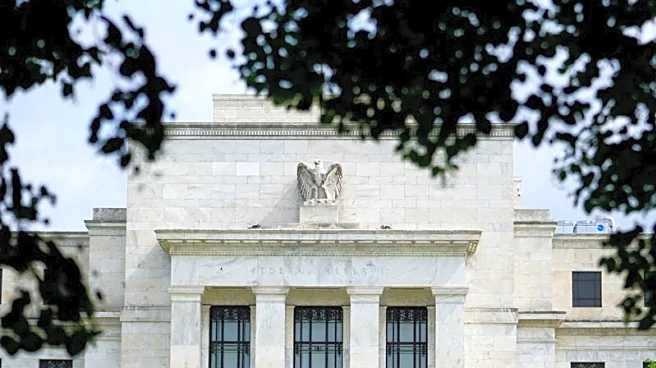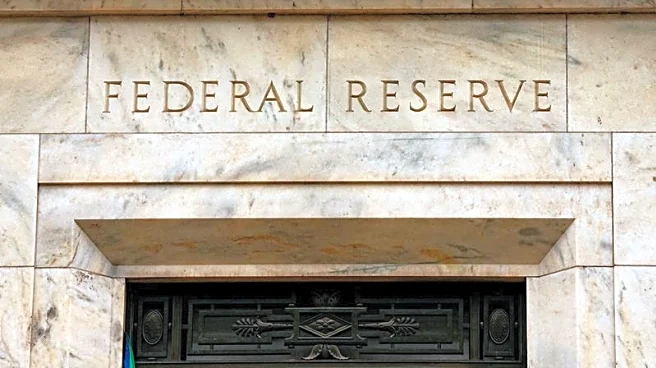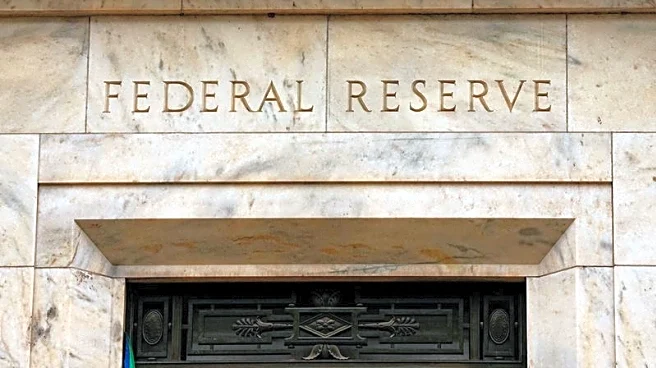What's Happening?
The Federal Reserve is facing increased pressure to address its balance sheet strategy due to recent strains in short-term money markets. These markets, crucial for overnight borrowing by banks and hedge funds, have experienced a shortage of available
cash, leading to a rise in overnight interest rates. The secured overnight financing rate (SOFR) recently exceeded the Fed's target range, prompting some banks to borrow billions from a Fed backstop facility. This situation has reignited discussions about the Fed's ongoing balance sheet reduction, a process initiated over three years ago as part of unwinding emergency measures from the pandemic and previous financial crises. The volatility in these markets has raised concerns about the potential need to halt the balance sheet reduction sooner than planned.
Why It's Important?
The developments in the short-term money markets are significant as they highlight potential vulnerabilities in the financial system's 'plumbing.' The Fed's balance sheet strategy is crucial for maintaining liquidity and stability in these markets. If the Fed continues to shrink its balance sheet, it could exacerbate cash shortages, leading to higher borrowing costs and potential disruptions in financial markets. This situation underscores the delicate balance the Fed must maintain between reducing its balance sheet and ensuring sufficient liquidity in the financial system. The outcome of this debate could have wide-ranging implications for interest rates, market stability, and the broader economy.
What's Next?
The Federal Reserve may need to reassess its balance sheet reduction strategy in light of the recent market strains. Potential actions could include pausing or slowing the reduction process to ensure adequate liquidity in the short-term money markets. Stakeholders, including banks, hedge funds, and financial analysts, will be closely monitoring the Fed's decisions and statements for indications of any policy shifts. The Fed's response will be critical in maintaining market confidence and preventing further volatility.














